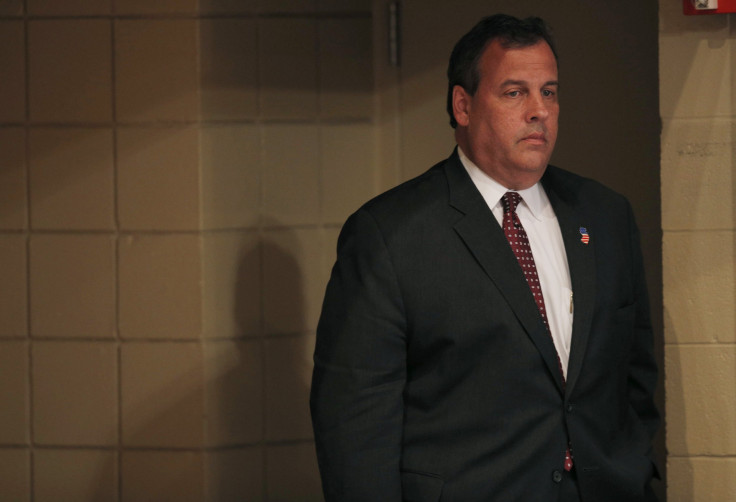Chris Christie Slams 'Corporate Welfare' Before Proposing Millions In Tax Breaks For Corporations Back Home

New Jersey Gov. Chris Christie, a Republican presidential candidate, slammed the "corporate welfare and subsidies" of the Washington, D.C.-based Export-Import (Ex-Im) Bank in an interview with the Daily Signal, the news website of the conservative Heritage Foundation.
At the same time, his home state administration plans on proposing Tuesday $100 million in new tax subsidies "to encourage [corporations] to make a capital investment and locate in ... New Jersey," according to the state's public agenda. The new subsidies are the latest in a series of corporate tax breaks and subsidies to invest or locate in New Jersey that have noticeably accelerated since Christie took office.
"My view is that [the Ex-Im Bank] is the type of corporate welfare and subsidies that we can’t afford," Christie told the Daily Signal while in Atlanta attending the recent RedState Gathering, a forum for conservative politicians and leaders. The federally run bank, which finances the export of U.S. goods and services, has become a contentious program this year after decades of unanimous support.
Christie's administration has been behind a major push for corporate financial tax breaks and other subsidies, a tactic that the New Jersey Policy Perspective, a nonpartisan, nonprofit public policy research organization, says has had little impact on the overall state economy.
The Ex-Im Bank is designed to provide loans and guarantees for U.S. exporters when private lenders are unable or unwilling to take on the political or capital risk of providing such loans. As the debate about the program heated up this year, critics have called it a form of corporate welfare that provides federal money to major money makers that don't necessarily need it. Back home, Christie's administration has championed state-sponsored tax breaks during his time as governor to entice major corporations like JPMorgan Chase and the Philadelphia 76ers to open up million-dollar facilities in the Garden State.
The idea is that by giving $180 million to a corporation like JPMorgan Chase, New Jersey will see a rise in long-term jobs that are unlikely to disappear soon. The results, however, have been murky. As the total spent by New Jersey to bring in jobs and industry pushed past a record-breaking $6 billion during Christie's time as governor, so too has the cost-per-job risen. In 2014, the average cost of an individual job pulled into the state through tax breaks was $80,000. In 2009, Jersey spent just $18,000 per job.
Christie is looking to overcome faltering national polling in his bid for the Republican nomination next year, hoping to frame his economic background as the chief executive of New Jersey in a positive light for voters. Just three years ago, he was a political darling, but his light has dimmed considerably.
He's fought back against charges that the governor's administration was involved with illegal political retribution. The best-known instance: The so-called Bridgegate, when political operatives apparently nearly halted traffic for several days over the George Washington Bridge, a key New Jersey-to-Manhattan artery. His state has also been the target of more than a half dozen credit downgrades during his governorship.
He is currently polling at 9th place in the crowded Republican field in an average of polls compiled by Real Clear Politics.
© Copyright IBTimes 2025. All rights reserved.






















